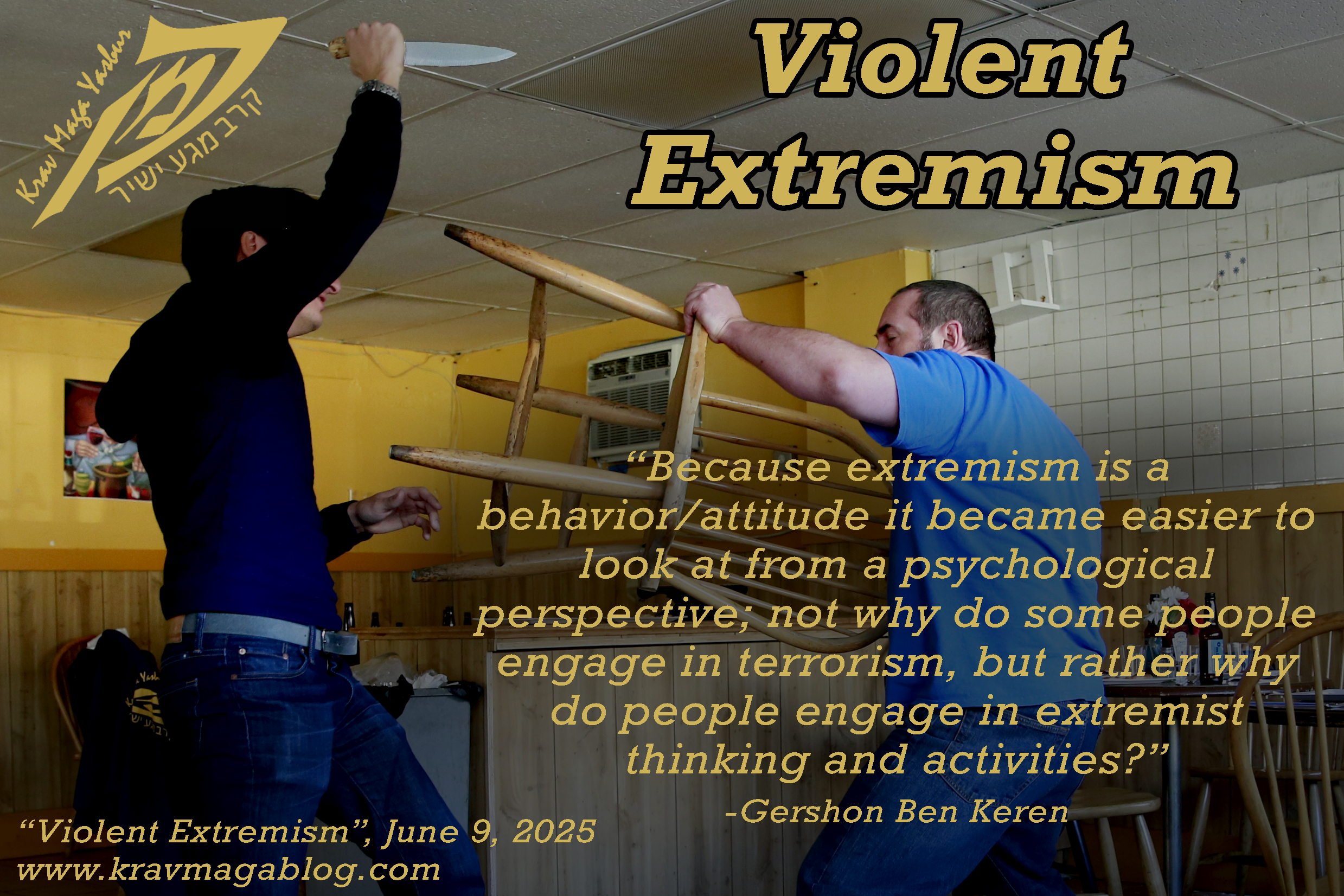Author: Gershon Ben Keren

In the early 2000’s the term “terrorism” started to be replaced by “violent extremism”, both in academia and public policy e.g. organizations like the United Nations, U.S. Department of State, and various European counter-terrorism bodies began using the term "violent extremism" more frequently, with the “UN's Plan of Action to Prevent Violent Extremism”, which was introduced in 2015, marking a key institutional endorsement of the term etc. Whilst there are those who saw this as a form of political correctness e.g., various individuals and organizations didn’t want to stigmatize and label individuals who had committed acts of violence with a politically charged term, such as being “terrorists” etc., the change, to violent extremism, allowed what had been quite a restrictive term – limited to those who had committed or were planning to commit violent acts – to be applied to those who espoused and supported such violence, but weren’t active in applying it e.g., a supporter of ISIS, the IRA and/or HAMAS etc., who perhaps funded these organizations, but didn’t personally/physically engage in acts of “terror” could now come under the umbrella of violent extremism, and be looked on as violent extremists. Because extremism is a behavior/attitude it became easier to look at from a psychological perspective; not why do some people engage in terrorism, but rather why do people engage in extremist thinking and activities?
We all have the capability to be extremists. In my competing days my lifestyle was extremist; I trained 5-6 hours a day, I followed a restricted diet, I limited my social activities etc. This was all necessary for me to accomplish my goals of winning competitions. I had a friend who continued in this lifestyle, after getting married and having kids, who saw his marriage fall apart because he was never home and always training (he only made the connection between this and his extreme training regime some ten-years after his divorce). However, extremism comes with its benefits, i.e., we both won national titles. However, there are also “costs”. This is because, as psychologist, Dr. Arie Kruglanski, puts it “Extremism is a psychological state of motivational imbalance that happens when one of our basic needs is so dominant that it crowds out the others.” For the terrorist/violent extremist they may withdraw from their family, and with Islamist extremists their mosque, and start living a more extreme lifestyle in preparation for becoming a “Shahid”, a martyr who is prepared to die for a cause. This certainly represents a “motivational imbalance”, as a person who is prepared to conduct an act to promote an issue and move the goals of an organization forward at the expense of their own life isn’t motivationally balanced e.g., whilst believing in something and possibly supporting a cause isn’t in itself out of the ordinary, when it’s not balanced with a work and/or social/family life, it becomes something that is “extreme”.
There are though good reasons why we at times become motivationally imbalanced, e.g., if we find ourselves in a survival situation where we need water to live, it makes sense for this to be the single thing that we focus on, and we should attack the problem with a single-mindedness that excludes everything else. However, like many things we can apply this type of thinking in situations that don’t require it e.g., it is good to learn and educate ourselves to the fact that snakes can be extremely harmful/dangerous, however if we turn that into a phobia, that sees us jump and become adrenalized every time we see an electrical cable lying on the ground, then that’s not such a positive/good thing. So, whilst we have a “biological” predisposition to extremism as part of our survival instinct, humans also have the ability to create existential threats, along with narratives that support them e.g., the Jews (threat) need to be eliminated because, as those Neo-Nazis with their Tiki torches chanting at Charlottesville in 2017 seemed to believe, Jews want to replace them (narrative); not that I want to speak for the entire Jewish people but I’m pretty sure we, as a people, don’t want anything that anyone on that march had/has e.g., they can keep their hate and unhappiness.
The journey to violent extremism is rarely a quick or immediate one, though it does usually start with some form of drastic lifestyle change; a decision to give up on some form of social norm(s) etc., to engage in another activity. This is normally preceded by the research and study of a certain issue or time in history etc. In the modern world this can quickly be hijacked by violent extremists e.g., someone goes to a forum online to ask genuine questions about something, and they’re met by someone who gives them a “unique” perspective on it e.g., they may tell them that their current – and the mainstream – understanding of Islam is flawed, incorrect and wrong etc. That they should no longer go to the mosque, and listen to their current Imam etc., but instead listen to a certain set of lectures given by another Iman. It may be that this individual initially tries to inform others that they should follow their direction etc., and when met with resistance and reluctance, as those they met online said they would, they pull away and isolate themselves. All of these behaviors being biologically/psychologically reinforced by a survival instinct that tells them extremism and violence is the only way to deal with the threat (existential) that they face.